
What are you reading today/book club
Re: What are you reading today/book club
I attended a viewing of a short film about the position of women within Buddhist hierarchy and how the position of women changed over time to where it is now- in many places women cannot achieve equal status with monks. The group screening the film recommended Buddhism After Patriarchy by Rita Gross for further elaboration on the subject so I decided to check it out. Also currently finishing up Tropic of Cancer.


- 2
a disaster is a terrible thing to waste
-
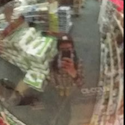
purkinje - Posts: 416
- Joined: Mon Sep 23, 2013 4:25 pm
- Location: ny/boston/jail
- Reputation: 1598
Re: What are you reading today/book club
Just finished Turn of the Screw by Henry James for a flaxy discussion, really quick read, fun discussion. One person in our discussion was pretty convinced that the book was a massive piece of shit and didn't deserve any merit, she ended up throwing her book in the trash. Kind of interesting seeing that kind of a fit in a senior level class... AP students mind you. Not that AP students can't be immature.
Reading House of Leaves (right now) for our next flaxy group I believe. Either that or IQ84 but a majority of the group doesn't want to partake in the adventure that seems to be IQ84, we may end up doing it after winter break so we have more time to read.
Reading House of Leaves (right now) for our next flaxy group I believe. Either that or IQ84 but a majority of the group doesn't want to partake in the adventure that seems to be IQ84, we may end up doing it after winter break so we have more time to read.
- 2
-
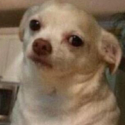
JewTurk - Posts: 590
- Joined: Thu May 29, 2014 3:20 am
- Reputation: 1856
Re: What are you reading today/book club
Finishing up 1Q84. Really good read. Trying to start and get good progress on Caliban and The Witch before I'm swamped with reading for class.
- 0
-

momjeans - Posts: 84
- Joined: Sun Jul 20, 2014 12:39 pm
- Reputation: 225
Re: What are you reading today/book club
Attempting to read 120 days of sodom, 10% into the book so far and it's been... interesting?
- 1
-

nothobo - Posts: 102
- Joined: Wed May 07, 2014 1:28 pm
- Reputation: 480
Re: What are you reading today/book club
Joined a book club and we're reading fingersmith and I'm like this book is lame. It's not bad or anything it's just boring. I don't see the point.
- 5

-
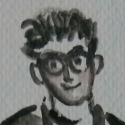
bels - Yung Winona
- Posts: 5087
- Joined: Thu Jul 11, 2013 2:43 pm
- Reputation: 18872
Re: What are you reading today/book club
Just finished The Castle by Kafka, before that I was reading a biography of Kafka that covers 5 years of his life in about 500 pages which was pretty intense
now I'm reading The Brothers Karamazov by Dostoevsky
now I'm reading The Brothers Karamazov by Dostoevsky
- 1

- oucho
- Posts: 508
- Joined: Thu Mar 27, 2014 5:34 pm
- Reputation: 3714
Re: What are you reading today/book club
I'm reading Burr by Gore Vidal and I'm finding it really interesting. Early US history has such a sense of mythology to it which Vidal delights in subverting (albeit in a historical fiction context, with debatable accuracy).
- 0
-

wax - Posts: 77
- Joined: Sat Dec 28, 2013 9:27 am
- Location: Brisbane
- Reputation: 579
Re: What are you reading today/book club
Can anyone help me finding the origins of the phrase "Truth" or capital T truth?
The earliest use of it that I can find is from "Zen in the Art of Archery" but it seems to have been popularized to an extent by DFW. I'm getting that Truth are truths that are unchanging, universally true, but I'm trying to find more literature that uses it to help with an essay I'm doing right now. I can't find anything besides the aforementioned Zen and that DFW speech/essay.
e:
I get that it's a common phrase I just need some background/origins of it that I can reference, it has to have originated from something before DFW but Zen in the Art of Archery doesn't seem to be it, at least I don't think.
The earliest use of it that I can find is from "Zen in the Art of Archery" but it seems to have been popularized to an extent by DFW. I'm getting that Truth are truths that are unchanging, universally true, but I'm trying to find more literature that uses it to help with an essay I'm doing right now. I can't find anything besides the aforementioned Zen and that DFW speech/essay.
e:
I get that it's a common phrase I just need some background/origins of it that I can reference, it has to have originated from something before DFW but Zen in the Art of Archery doesn't seem to be it, at least I don't think.
- 1
-

JewTurk - Posts: 590
- Joined: Thu May 29, 2014 3:20 am
- Reputation: 1856
Re: What are you reading today/book club
Reading Jane Eyre right now, pretty good. Not sure why sure it gets hated on.
Mainly reading it so I can read Virginia woolf though.
Mainly reading it so I can read Virginia woolf though.
- 6
草地跑過的腳印
-

smiles - Posts: 992
- Joined: Wed Jul 31, 2013 10:25 pm
- Location: BK
- Reputation: 6585
Re: What are you reading today/book club
I've been reading Anthony Doerr's short story compilation The Shell Collector. It's incredible. "The Hunter's Wife" won an O'Henry award and with good reason. He writes across a huge swath of characters and settings by cutting right into the purest essence of what it means to be human in a world of so much more. His sense of setting immensely impacts his stories--the woods of Montana, small-town Ohio, war-torn Liberia, a beach surrounded by coral reefs, the Pacific Northwest. Masterful.
- 2
-
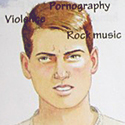
vgtbls - Posts: 673
- Joined: Tue Mar 25, 2014 1:10 pm
- Reputation: 4905
Re: What are you reading today/book club
currently reading don't sleep, there are snakes, a personal account of living with the piraha people for 30 years, as well as a linguistic argument for language preservation, super cool so far, but not sure if i agree with his argument. the account of the trials he faces in the amazon are enthralling no matter what your interest in linguistics, however. highly recommended so far
also in the middle of the chinese language: fact and fantasy, by john defrancis, which is an incredible debunking of common myths perpetuated by cocktail party arrogance about the chinese language. did you know that egyptian hieroglyphics aren't pictographic, but are instead syllabic??? who knew??
AAAND almost done with 1Q84, but stalling out as it's suuuuper duper long. really enjoyed the first 500 or so pages, but it's starting to lose me.. i guess i'll just power through and try to finish it off
also in the middle of the chinese language: fact and fantasy, by john defrancis, which is an incredible debunking of common myths perpetuated by cocktail party arrogance about the chinese language. did you know that egyptian hieroglyphics aren't pictographic, but are instead syllabic??? who knew??
AAAND almost done with 1Q84, but stalling out as it's suuuuper duper long. really enjoyed the first 500 or so pages, but it's starting to lose me.. i guess i'll just power through and try to finish it off
- 1
-

Ques - Posts: 685
- Joined: Mon Dec 23, 2013 8:45 pm
- Location: virginia
- Reputation: 3668
Re: What are you reading today/book club
we're reading Inherent Vice for book club and I need to come up with dope book club questions to impress everyone. Anyone got any ideas? Struggling to see the book as much more than a psychadelic gumshoe type thing but with some pretty 2d characters and not much drive.
- 1

-

bels - Yung Winona
- Posts: 5087
- Joined: Thu Jul 11, 2013 2:43 pm
- Reputation: 18872
Re: What are you reading today/book club
It's been 5 years since I read it so while I tried to refer to some things to make sure i wasn't blowing smoke, forgive me if some of this stuff is answered in the book.
Well, the California trilogy is packed with 2D characters, which is as much a comment on California as it is an indictment on Pynchon's style. Sure, his other books have characters defined entirely by their gimmicks, but they ALSO have fully fleshed out characters, which is what makes Inherent Vice and co interesting in their lack of them. I actually haven't read much in the way of hard-boiled noir books, but to my understanding the exploitation and spin on the singularly-focused flat characters that show up in that genre plays well with Pynchon's immense reference library. Which is to say, flatness of character has both history and reference of trope, and while it may be a cop-out I'd say having a history of solid characterization makes me more willing to give him the benefit of the doubt.
The book also seems to work best as a snapshot of history passed through some fucked up filter - the characters are (lazy, if you want to call it that) caricatures of people and personified attitudes of the time on steroids. It's no mystery that the book takes place on the cusp between the 60s and 70s, the potheads, surfers and dudes who think geodesic domes are the future fighting an insidious, vaguely asiatic-sounding group in the golden fang (actually "a bunch of honkey[s]") and a brutal LAPD, presaging (just the way some of the silly hippy-dippy names that we kind of associate with the 70s because they were borne of the 60s do), a kind of grittier, sprawling (always a California virtue), more cynical world that history shows has no place for our heroes, even if they "win."
That said, I think some things to look at would be: the obvious theme of paranoia and how it drives Doc and the rest of the world, who these characters are and what part of the world do the exemplify, who are the good guys and who are the bad guys in a gestalt sense, how the inherent vice motif that is repeated on both grand scale and in miniature affects the future of these characters (whose fates we already know beyond the book, based on history), how sick would it be to surf the jesus wave (seriously, a lot of anachronistic references to big wave surfing as opposed to beach blanket bingo style surfing), etc.
Well, the California trilogy is packed with 2D characters, which is as much a comment on California as it is an indictment on Pynchon's style. Sure, his other books have characters defined entirely by their gimmicks, but they ALSO have fully fleshed out characters, which is what makes Inherent Vice and co interesting in their lack of them. I actually haven't read much in the way of hard-boiled noir books, but to my understanding the exploitation and spin on the singularly-focused flat characters that show up in that genre plays well with Pynchon's immense reference library. Which is to say, flatness of character has both history and reference of trope, and while it may be a cop-out I'd say having a history of solid characterization makes me more willing to give him the benefit of the doubt.
The book also seems to work best as a snapshot of history passed through some fucked up filter - the characters are (lazy, if you want to call it that) caricatures of people and personified attitudes of the time on steroids. It's no mystery that the book takes place on the cusp between the 60s and 70s, the potheads, surfers and dudes who think geodesic domes are the future fighting an insidious, vaguely asiatic-sounding group in the golden fang (actually "a bunch of honkey[s]") and a brutal LAPD, presaging (just the way some of the silly hippy-dippy names that we kind of associate with the 70s because they were borne of the 60s do), a kind of grittier, sprawling (always a California virtue), more cynical world that history shows has no place for our heroes, even if they "win."
That said, I think some things to look at would be: the obvious theme of paranoia and how it drives Doc and the rest of the world, who these characters are and what part of the world do the exemplify, who are the good guys and who are the bad guys in a gestalt sense, how the inherent vice motif that is repeated on both grand scale and in miniature affects the future of these characters (whose fates we already know beyond the book, based on history), how sick would it be to surf the jesus wave (seriously, a lot of anachronistic references to big wave surfing as opposed to beach blanket bingo style surfing), etc.
- 4

-
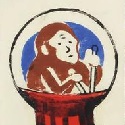
odradek - Posts: 993
- Joined: Fri Aug 02, 2013 4:53 pm
- Reputation: 6056
Re: What are you reading today/book club
Good shout on the 2D chars being a genre trope. Doc himself is quite likeable so throws the rest of the characters into relief.
Also thinking about it, Chandler was kind of a straight and noir fiction seems to me a very straight genre (sort of like batman seems to me now, the lone hero, doing what it takes, you pinkos don't like it but he's the only one who can get justice). Chandler wrote a big essay once about how the core of detective fiction has to be the detective and the characteristics the character must embody (He must walk these mean streets but not be mean or something) So maybe there's something t obe said there.
http://en.wikipedia.org/wiki/The_Simple_Art_of_Murder
Also thinking about it, Chandler was kind of a straight and noir fiction seems to me a very straight genre (sort of like batman seems to me now, the lone hero, doing what it takes, you pinkos don't like it but he's the only one who can get justice). Chandler wrote a big essay once about how the core of detective fiction has to be the detective and the characteristics the character must embody (He must walk these mean streets but not be mean or something) So maybe there's something t obe said there.
http://en.wikipedia.org/wiki/The_Simple_Art_of_Murder
- 0

-

bels - Yung Winona
- Posts: 5087
- Joined: Thu Jul 11, 2013 2:43 pm
- Reputation: 18872
Re: What are you reading today/book club
Can we have a mini-book club ? I've been really enjoying IV but it seems to be kind of purposed as more of a relaxed read/comical take on the 60s/70s counter-culture. Very enjoyable none the less.
I've only read CoL49 and a bit of his short stories, so I'm not super keen on most of his themes of paranoia.
I think it'd be interesting to talk about whether or not a book stuffed with cultural references could span generations/continents. It seems like a lot of critics look at Pynchon's books as things that will 100% stand the test of time but there's an absurd amount of referencing going on that gives the time period such a strong setting.
It seemed like CoL49 could be looked at as having strong undertones of women breaking free from societal expectations (tupper ware parties etc). CoL49 and IV seem to be similar in their setup with someone trying to solve some grandiose mystery that is personally important to them and in the process only get more confused/complex issues which kind of parallels the whole entropy theme that pervaded CoL49. But I can't really see what Pynchon is getting at with Doc... I do really enjoy the counter-culture centered plots though, "Under the paving stones, the beach!" etc.
I mean so far all IV has seemed to be is a crazy amount of references to culture in the 60s/70s, a lot of Pynchon word play/humor, characters that get developed through their dialogue, and then conspiracy theories galore. There has been a lot of mentions wrt the Manson Trial and Nixon but I haven't really done a ton of researching to see what he was getting at/where it could be going later on in the book.
I do like that he references low brow and high brow references pretty evenly. There is an obscene amount of song references that have made the novel really enjoyable too.
Hasn't pynchon gotten a lot of gruff for his flat characters? If I remember right he was quoted saying he learned from his mistake about his weak characterization before IV was published so it could very well be purposeful.
Where do you peg IV with regards to his other works? You said Bleeding Edge was a mix of CoL49/IV, was that a good or bad thing? Bleeding Edge is next on my booklist and I'm hoping I can nab the cultural stuff a bit easier. I've been using my dad as an encyclopedia with IV since he was such a culture fiend in the 60s/70s.
I've only read CoL49 and a bit of his short stories, so I'm not super keen on most of his themes of paranoia.
I think it'd be interesting to talk about whether or not a book stuffed with cultural references could span generations/continents. It seems like a lot of critics look at Pynchon's books as things that will 100% stand the test of time but there's an absurd amount of referencing going on that gives the time period such a strong setting.
It seemed like CoL49 could be looked at as having strong undertones of women breaking free from societal expectations (tupper ware parties etc). CoL49 and IV seem to be similar in their setup with someone trying to solve some grandiose mystery that is personally important to them and in the process only get more confused/complex issues which kind of parallels the whole entropy theme that pervaded CoL49. But I can't really see what Pynchon is getting at with Doc... I do really enjoy the counter-culture centered plots though, "Under the paving stones, the beach!" etc.
I mean so far all IV has seemed to be is a crazy amount of references to culture in the 60s/70s, a lot of Pynchon word play/humor, characters that get developed through their dialogue, and then conspiracy theories galore. There has been a lot of mentions wrt the Manson Trial and Nixon but I haven't really done a ton of researching to see what he was getting at/where it could be going later on in the book.
I do like that he references low brow and high brow references pretty evenly. There is an obscene amount of song references that have made the novel really enjoyable too.
Hasn't pynchon gotten a lot of gruff for his flat characters? If I remember right he was quoted saying he learned from his mistake about his weak characterization before IV was published so it could very well be purposeful.
Where do you peg IV with regards to his other works? You said Bleeding Edge was a mix of CoL49/IV, was that a good or bad thing? Bleeding Edge is next on my booklist and I'm hoping I can nab the cultural stuff a bit easier. I've been using my dad as an encyclopedia with IV since he was such a culture fiend in the 60s/70s.
- 1
-

JewTurk - Posts: 590
- Joined: Thu May 29, 2014 3:20 am
- Reputation: 1856
Re: What are you reading today/book club
I just finished and looking at the pynchon wiki there's some talk of an extra day that is inserted around chapter 16 that lasts until the end of chapter 17. Obviously, I didn't pick up on this whilst I was reading. It doesn't seem like anything really sets us up for it, though it is the day where pretty much all the mysteries get solved and re reading it it has a lot of weird oddities that i passed over first time round as just Pynchon being funny.
I thought it might include the shootout on Gummo Marx Way because that whole bit is weird but it doesn't look like it does.
I thought it might include the shootout on Gummo Marx Way because that whole bit is weird but it doesn't look like it does.
- 0

-

bels - Yung Winona
- Posts: 5087
- Joined: Thu Jul 11, 2013 2:43 pm
- Reputation: 18872
Re: What are you reading today/book club
reworking of time and space is a common theme - totally forgot about the extra day, but keep in mind the "The more you dwell in the past and in the future, the thicker your bandwidth, the more solid your persona. But the narrower your sense of Now, the more tenuous you are" thing, then look at the major plot point of http://www.factshunt.com/2014/01/the-cu ... ssing.html in Mason & Dixon and the re-inserting of days in the pynchoniverse makes sense.
- 0

-

odradek - Posts: 993
- Joined: Fri Aug 02, 2013 4:53 pm
- Reputation: 6056
Re: What are you reading today/book club
My Qs if anyone wants to talk:
- The book's epigraph "Under the paving-stones, the beach!" is apparently a slogan from the May 1968 Paris student riots. Why do you think it was chosen?
- In the period the novel is set in Ronald Reagan was governor of California and had been elected whilst promising: "To send the welfare bums back to work." It's reported that Pynchon lived in Manhattan Beach for most of the sixties and early seventies whilst composing Gravity's Rainbow. What do you think that his personal outlook on that period was and how do you feel it has influenced the book? Why do you think this period was chosen and what do you think Pynchon is trying to tell us about it?
- On Page 332 Doc says "No, Bigfoot... no, you know what I think you really are? Is you’re the LAPD’s own Charlie Manson." Why are the repeated references to the Manson trial included?
- Some website defines Inherent Vice as:
"Hidden defect (or the very nature) of a good or property which of itself is the cause of (or contributes to) its deterioration, damage, or wastage. Such characteristics or defects make the item an unacceptable risk to a carrier or insurer. If the characteristic or defect is not visible, and if the carrier or the insurer has not been warned of it, neither of them may be liable for any claim arising solely out of the inherent vice."
What can we say about the themes of Inherent Vice in the book itself? As it is set in the past, we know the fate of almost all the books characters in a sort of macro way. We know what happens to hippies and the drug culture, what the ARPA net becomes etc. Are there other places the title is relevant?
- The majority of characters in the novel are two dimensional caricatures Pynchon pins particular tropes, or behaviours on. The only possible exception to this is Doc. Why do you think that the majority of the characters have been drawn so flatly?
- Raymond Chandler wrote a lot of detective fiction set in LA. He also wrote an essay about the genre called The Simple Art Of Murder (http://www.en.utexas.edu/amlit/amlitpri ... erart.html) How do you think the novel measures up to Chandler's criteria for a good novel? How does it measure up to other detective stories, either books, films or TV shows?
- According to the Thomas Pynchon wiki, there is an extra day added half way through chapter sixteen which lasts until the end of chapter seventeen. (http://inherent-vice.pynchonwiki.com/wi ... Chapter_16) What effect does this have on your interpretation of the events that happen during these chapters? Why do you think this extra day was added?
- Who are the good guys in the book and conversely, who are the bad guys? Is there any commentary to be found in their fates?
- An essay I found at https://www.pynchon.net/owap/article/view/50/156 mentions that paranoia is sort of one of Doc's tools as a private eye. What other parts does paranoia play in the novel?
- Pynchon is known for his many references to high and low culture, what are some references or diversions that you noticed or would like to draw attention to?
- The book's epigraph "Under the paving-stones, the beach!" is apparently a slogan from the May 1968 Paris student riots. Why do you think it was chosen?
- In the period the novel is set in Ronald Reagan was governor of California and had been elected whilst promising: "To send the welfare bums back to work." It's reported that Pynchon lived in Manhattan Beach for most of the sixties and early seventies whilst composing Gravity's Rainbow. What do you think that his personal outlook on that period was and how do you feel it has influenced the book? Why do you think this period was chosen and what do you think Pynchon is trying to tell us about it?
- On Page 332 Doc says "No, Bigfoot... no, you know what I think you really are? Is you’re the LAPD’s own Charlie Manson." Why are the repeated references to the Manson trial included?
- Some website defines Inherent Vice as:
"Hidden defect (or the very nature) of a good or property which of itself is the cause of (or contributes to) its deterioration, damage, or wastage. Such characteristics or defects make the item an unacceptable risk to a carrier or insurer. If the characteristic or defect is not visible, and if the carrier or the insurer has not been warned of it, neither of them may be liable for any claim arising solely out of the inherent vice."
What can we say about the themes of Inherent Vice in the book itself? As it is set in the past, we know the fate of almost all the books characters in a sort of macro way. We know what happens to hippies and the drug culture, what the ARPA net becomes etc. Are there other places the title is relevant?
- The majority of characters in the novel are two dimensional caricatures Pynchon pins particular tropes, or behaviours on. The only possible exception to this is Doc. Why do you think that the majority of the characters have been drawn so flatly?
- Raymond Chandler wrote a lot of detective fiction set in LA. He also wrote an essay about the genre called The Simple Art Of Murder (http://www.en.utexas.edu/amlit/amlitpri ... erart.html) How do you think the novel measures up to Chandler's criteria for a good novel? How does it measure up to other detective stories, either books, films or TV shows?
- According to the Thomas Pynchon wiki, there is an extra day added half way through chapter sixteen which lasts until the end of chapter seventeen. (http://inherent-vice.pynchonwiki.com/wi ... Chapter_16) What effect does this have on your interpretation of the events that happen during these chapters? Why do you think this extra day was added?
- Who are the good guys in the book and conversely, who are the bad guys? Is there any commentary to be found in their fates?
- An essay I found at https://www.pynchon.net/owap/article/view/50/156 mentions that paranoia is sort of one of Doc's tools as a private eye. What other parts does paranoia play in the novel?
- Pynchon is known for his many references to high and low culture, what are some references or diversions that you noticed or would like to draw attention to?
- 5

-

bels - Yung Winona
- Posts: 5087
- Joined: Thu Jul 11, 2013 2:43 pm
- Reputation: 18872
Re: What are you reading today/book club
would it be cool to have a book club thread?
anyone interested in something like this?
anyone interested in something like this?
- 2
-

CleanThug - Posts: 336
- Joined: Sun Feb 02, 2014 10:23 am
- Location: I'm so Northern California
- Reputation: 807
Re: What are you reading today/book club
ive been meaning to read from beirut to jerusalem by thomas friedman for a while now, if anyone else is interested in a ~group read~ of that PM me?
- 0
-

Ques - Posts: 685
- Joined: Mon Dec 23, 2013 8:45 pm
- Location: virginia
- Reputation: 3668
Re: What are you reading today/book club
How do we democratically pick our next book? I'd love to read The Double or Notes from Underground.
- 0
-

JewTurk - Posts: 590
- Joined: Thu May 29, 2014 3:20 am
- Reputation: 1856
Re: What are you reading today/book club
The Idiot or Brothers Karamazov. Go hard or go home.
(Reading the double now and not feeling it.)
(Reading the double now and not feeling it.)
- 0

-

bels - Yung Winona
- Posts: 5087
- Joined: Thu Jul 11, 2013 2:43 pm
- Reputation: 18872
Who is online
Users browsing this forum: No registered users and 18 guests
